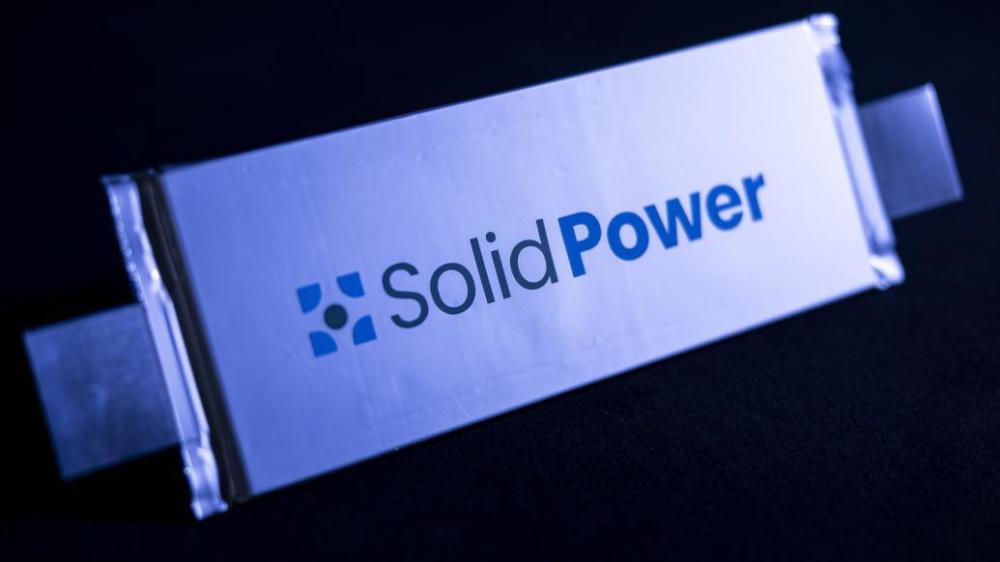
Recently, BMW Group said in the company announcement that it will start the next stage of joint research and development of all-solid-state batteries with American start-up Solid Power, and adopt Solid Power's all-solid-state battery pilot production line in its own battery manufacturing center (CMCC), and then move towards the long-term goal - mass production of all-solid-state batteries.
Under an expanded joint development agreement between the two companies, the BMW Group has licensed Solid Power's technology to replicate Solid Power's pilot line at its Battery Manufacturing Center (CMCC) near Munich in Parsdorf.
BMW said the expanded partnership will bring significant benefits to both companies. Solid Power and the BMW Group will carry out complementary battery development and manufacturing efforts to further advance the design and manufacturing of all-solid-state batteries.
"BMW remains committed to pursuing all-solid-state batteries, and we believe the technology has great potential in the future," said Frank Weber, member of BMW's Development Management Board.
Prior to the construction of the BMW Group's pilot line, BMW Group staff will work with Solid Power to optimize the battery manufacturing process.
According to the timeline, Solid Power will deliver full-size car batteries to the BMW Group for testing in 2023, with the first BMW prototype with an all-solid-state battery scheduled to be launched by 2025 and mass production of all-solid-state batteries by 2030.
As one of the important technical routes for future electric vehicle batteries, all-solid-state batteries using solid-state electrolytes have been favored by mainstream car companies such as BMW, Ford, Mercedes-Benz, and Honda around the world. In the view of many people in the industry, the current lithium-ion battery not only has reached the theoretical limit of energy density, but also has inherent defects such as safety and limited temperature range. For example, because lithium-ion batteries use liquid electrolyte materials, the electrolyte liquid is easy to burn under the condition of fast charging and rapid heating, which is prone to battery thermal runaway.
In the low temperature environment of lithium-ion batteries, the viscosity of the liquid electrolyte will become larger, the ion migration rate will be slower, and the charging and discharging energy will be sharply attenuated. At high temperature, the interface film of the positive and negative electrodes of the battery is unstable, resulting in material structure damage and explosive gas production.
It is understood that in 2011, Solid Power was established with the funding of the University of Colorado Boulder and the US Defense Advanced Research Projects Agency, and after its establishment, the company has successively received financial support from the US Air Force, the US National Science Foundation and the US Missile Defense Agency. In November 2015, Solid Power signed an agreement with Oak Ridge National Laboratory to obtain a special license for lithium-sulfur battery technology at Oak Ridge National Laboratory.
In 2017, BMW and Solid Power began cooperation on all-solid-state batteries to promote the application of all-solid-state batteries in high-performance pure electric vehicles. In 2021, BMW, Ford and other companies invested about $135 million in Solid Power, and promoted the listing of Solid Power on the NASDAQ in December of that year.
At present, Solid Power has two main product lines: sulfide solid electrolytes and soft pack all-solid state batteries. All-solid-state battery products are divided into three categories, of which the weight and energy density of the battery using "lithium metal anode + solid electrolyte + next-generation positive electrode" can reach 560Wh/kg, which is more than twice the current lithium-ion battery with the highest energy density, with a cycle life of more than 1000 times, and can be charged to 90% of the battery capacity in 30 minutes.
In June last year, Solid Power announced that it had completed the installation of an all-solid-state battery pilot line, which currently produces "50% silicon anode + solid electrolyte + ternary cathode" battery cells, with a weekly output of about 300 units and an annual output of about 15,000.
It is worth mentioning that the cooperation with Solid Power is only one part of the BMW Group's ambitious electrification blueprint. According to its goal, BMW will achieve more than 2 million pure electric vehicles on the road by the end of 2025.
By 2030, 50% of the BMW Group's worldwide sales will come from pure electric vehicles. By the early 30s of the 21st century, the MINI brand will have an exclusive pure electric series, and Rolls-Royce will also be an all-electric brand from 2030. In the future, all new BMW models in the field of urban mobility will be equipped with pure electric technology.
However, many people in the industry believe that due to cost factors, all-solid-state batteries will first be used in small amounts in BMW's new pure electric models in the future. Those models equipped with all-solid-state batteries will belong to the pyramid-like existence of BMW's pure electric models.